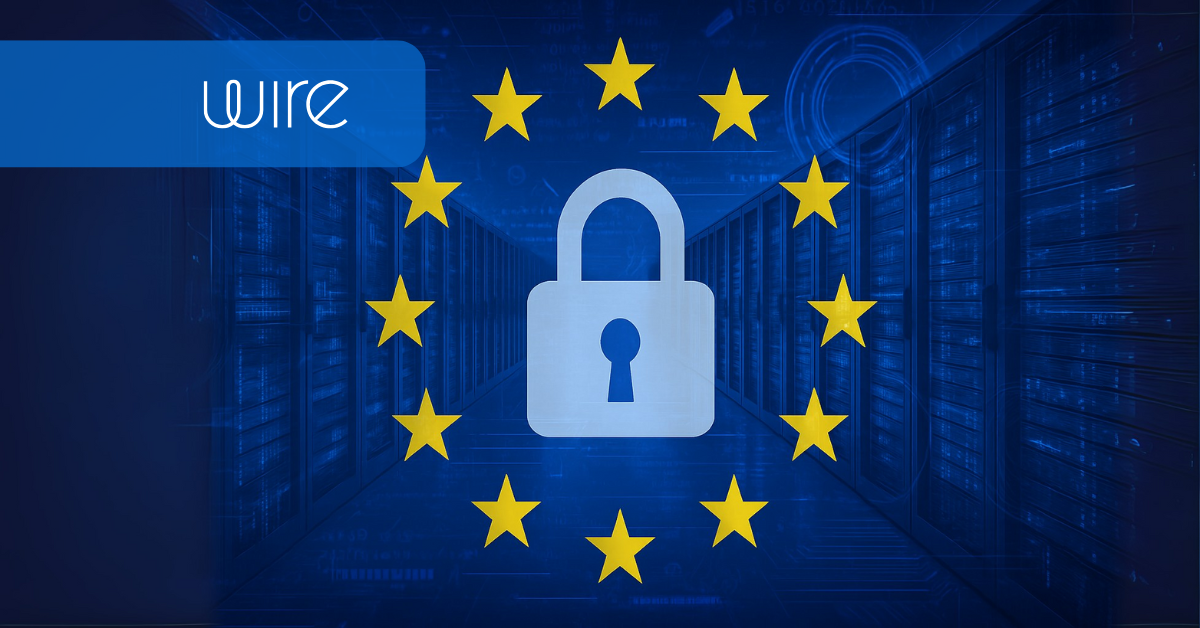When American tech giants pitch their cloud services as the answer to Europe's data sovereignty needs, they often use the term "sovereign platforms" to suggest they can offer the highest levels of security and compliance with European laws.
However, these claims can be misleading, and trusting US-based companies with critical data might come with significant risks, particularly for public institutions, enterprises, and citizens in the EU.
Here are seven reasons why relying on US-based platforms can undermine EU data sovereignty and what to do instead.
1. What Is the Cloud Act and Why Does It Affect EU Data?
One of the biggest red flags in the debate over data sovereignty is the Cloud Act, a US law that gives American authorities the power to access data stored abroad. This means that if your data is housed in a EU data center but managed by a US-based company, the US government can still legally demand access, even if it’s protected by European laws like the General Data Protection Regulation (GDPR).
Imagine: Your sensitive data, stored on European soil, theoretically protected by European laws, but the Cloud act leaves your information in a “ready” state to be compromised. Does that sound like digital sovereignty? Hardly.
2. How Do US Surveillance Laws Override EU Privacy Rules?
Under the Foreign Intelligence Surveillance Act (FISA), US intelligence agencies can demand access to foreign-stored data without notifying the organization or EU authorities.
Impact: GDPR safeguards are bypassed. There’s no European oversight here. No check on whether your data is being used for surveillance purposes. And even if it’s not being explicitly accessed by the government, the legal framework encourages US companies to cooperate with intelligence agencies, potentially putting your data at risk.
3. Do EU Citizens Have Legal Recourse in the US?
No. EU citizens generally cannot challenge US government data requests in American courts. Requests can be fulfilled without transparency or user notification. This lack of transparency and accountability makes it far riskier to trust US tech giants with your most sensitive data.
Impact: Once data is accessed under US law, there is little to no possibility of reversing the action or auditing its use.
4. What Are Government-Mandated Backdoors and Why Are They a Risk?
US law can compel companies to introduce backdoors into their platforms, allowing agencies to bypass encryption and access data. US law allows the creation of such backdoors for the purposes of surveillance. So, even if a company claims their platform is secure, there’s a chance that the US government could compel them to install a backdoor and gain access to your data without your knowledge.
While not every company may comply, the legal pressure on them to cooperate with intelligence agencies is immense. And once this backdoor is in place, your data is no longer safe, no matter how secure the platform claims to be.
5. How Does Global Data Sharing Create Security Gaps?
One of the most troubling aspects of US cloud providers is their sprawling global ecosystems. Many of these companies don’t just store your data, they share it across borders, often without clear transparency. Your data could be routed through countries with weaker privacy laws, or shared with third parties (including subsidiaries) that increase the risk of unauthorized access.
Impact: Exposure to jurisdictions outside the EU increases the risk of data leaks, misuse, and compliance breaches. But it gets even worse. Many U.S. businesses base a large part of their business plan not just on sharing, but on selling your data. In this case, the data ownership changes hands, in many cases to parties who have zero incentive to keep it safe.
6. Can Data Be Used as Political Leverage?
Yes. US-based companies and their data are often caught in the crossfire of geopolitical struggles. In times of international tension, the US government can leverage access to data stored with American companies as a tool for political or financial influence.
Impact: If Europe finds itself at odds with the US, whether over trade, policy, or international relations, its critical infrastructure and data could be used as leverage in these disputes. The potential for data to be held hostage by diplomatic tensions puts European companies at a significant disadvantage, especially when it comes to sensitive, critical information.
7. Have There Been Past Examples of US Overreach?
Yes. Edward Snowden’s disclosures revealed programs like PRISM and XKeyscore, where US agencies collected large volumes of global data, including from major US tech platforms. These programs weren’t just about spying on foreign governments, they also involved the surveillance of ordinary citizens, including Europeans.
Impact: Snowden's leaks revealed that US agencies had direct access to the servers of major US tech companies, and that they were using this data to track and monitor individuals worldwide. This is the history of data privacy under US companies. Let the buyer beware.
How to Protect EU Data Sovereignty
True sovereignty requires both technical and legal measures:
- Select EU-owned and operated platforms outside US jurisdiction.
- Deploy end-to-end encryption and Zero Trust architecture to minimize exposure.
- Ensure compliance with GDPR and NIS2 regulations.
Wire offers a sovereign collaboration platform with EU-based infrastructure, zero-knowledge encryption, and open-source transparency, enabling secure communication without compromise.
